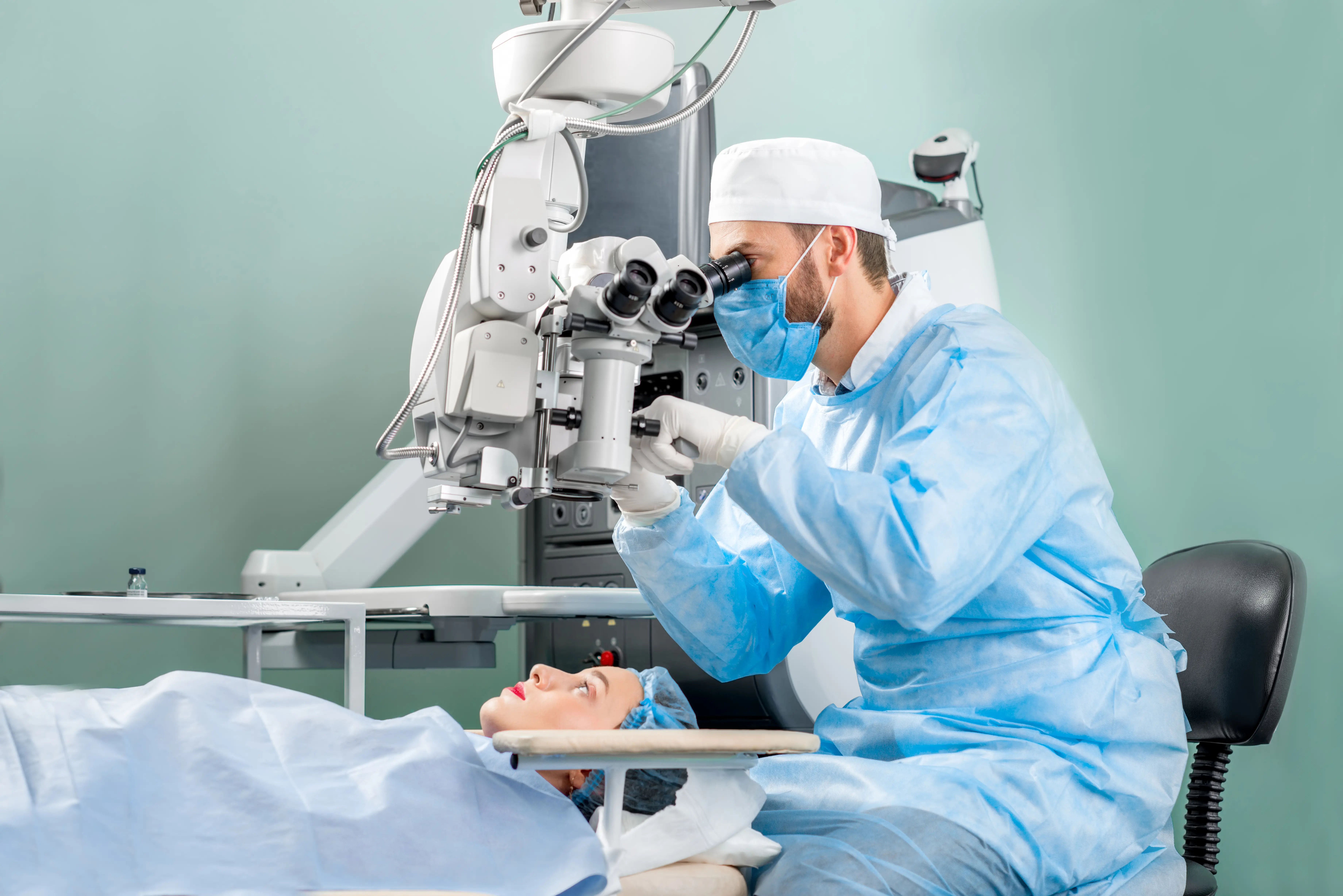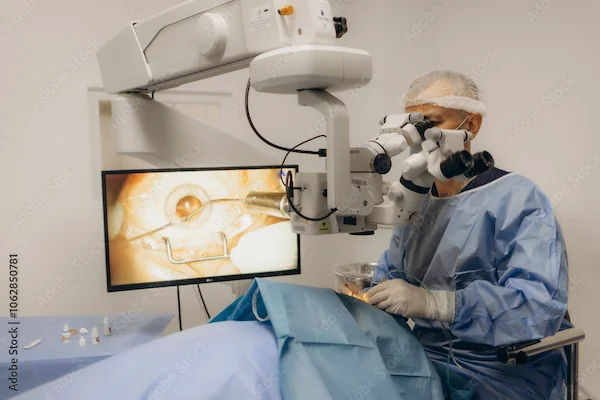What Causes Blurred And Double Vision After Cataract Surgery?
Understand the common causes of blurred and double vision after cataract surgery. Learn what’s normal, when to seek help, and how to ensure optimal healing and visual recovery.

Written by
Last updated on 13th Jan, 2026

Introduction
Cataract surgery is a common and generally safe procedure that helps restore clear vision by replacing a cloudy lens with an artificial one. However, some patients may experience blurred or double vision after the surgery. While this can be concerning, it’s usually temporary and manageable. Let’s explore why this happens and what you can do about it.
Understanding Blurred and Double Vision After Cataract Surgery
Experiencing blurred or double vision after cataract surgery can be concerning, but in many cases, it's part of the normal healing process. Understanding the possible causes, ranging from temporary dryness to more complex issues, can help you know what to expect and when to seek medical advice.
1. Normal Healing Process
After cataract surgery, your eye needs time to adjust to the new artificial lens (intraocular lens or IOL). Blurred vision is common in the first few days or weeks as your eye heals. Swelling or mild inflammation can temporarily affect your vision.
2. Dry Eyes
Surgery can disrupt tear production, leading to dry eyes. This can cause blurred vision, discomfort, or a gritty feeling. Using prescribed lubricating eye drops usually helps.
3. Residual Refractive Error
Sometimes, the new lens may not perfectly match your eye’s focusing needs, causing slight blurriness. This can often be corrected with glasses or a minor laser procedure (if needed).
4. Posterior Capsule Opacity (PCO)
In some cases, the thin membrane behind the new lens becomes cloudy over time, causing blurred vision, a condition called "secondary cataract". A quick laser treatment (YAG capsulotomy) can easily fix this.
5. Double Vision (Diplopia)
Double vision after cataract surgery can occur due to:
Muscle Imbalance: The eye muscles may take time to adjust to the new lens.
Swelling or Misalignment: Temporary swelling or slight lens misplacement can cause double images.
Pre-existing Conditions: If you had an undiagnosed eye muscle issue (like strabismus), surgery might make it noticeable.
Consult Top Specialists for Personalised Tips
6. Rare Complications
In very few cases, complications like retinal detachment or infection may cause vision problems. If your blurred or double vision is sudden, severe, or accompanied by pain, seek medical help immediately.
How Long Does It Last?
Blurred Vision: Typically improves within a few days to weeks.
Double Vision: Often resolves as the eye heals, but if it persists beyond a month, consult your doctor.
Tips for Managing Vision Issues After Surgery
Some of the tips for managing vision issues after surgery are:
1. Follow Post-Op Care Instructions
Use prescribed eye drops to prevent infection and reduce inflammation.
Avoid rubbing your eyes.
Wear protective eyewear as advised.
2. Keep Eyes Moisturized
Use artificial tears if you experience dryness.
Stay hydrated and avoid excessive screen time.
3. Give Your Eyes Time to Adjust
Avoid straining your eyes with heavy reading or screens in the first week.
Be patient. Your vision may fluctuate before stabilising.
4. Wear Sunglasses
Bright light may cause discomfort initially. Polarised sunglasses can help.
5. Follow-Up with Your Doctor
Attend all post-surgery check-ups to monitor healing. If vision problems persist, your doctor may recommend glasses, eye exercises, or further treatment.
When to Seek Help?
Contact your eye specialist if you experience:
Sudden vision loss
Severe pain or redness
Flashes of light or floating spots (could indicate retinal issues)
Double vision that doesn’t improve
Conclusion
Blurred or double vision after cataract surgery is usually temporary and part of the healing process. Most patients see significant improvement within weeks. However, if you have concerns, don’t hesitate to reach out to your doctor. If you’re experiencing prolonged vision issues after cataract surgery, consider booking a consultation with an eye specialist.
Consult Top Eye Doctor
Consult Top Specialists for Personalised Tips

Dr. Zennat Tajmin Shah
Ophthalmologist
24 Years • MBBS,DO,DNB (ophthalmology), Vitreo Retina Surgeon
Kolkata
Titanium Eye Care, Kolkata

Dr Ranojit Basu
Ophthalmologist
24 Years • MBBS, DNB Ophthalmology, Diploma in Ophthalmic Medicine and. Surgery
Kolkata
Titanium Eye Care, Kolkata
Dr. Padmini S
Ophthalmologist
4 Years • MBBS,MS
Bengaluru
Apollo Medical Center, Marathahalli, Bengaluru
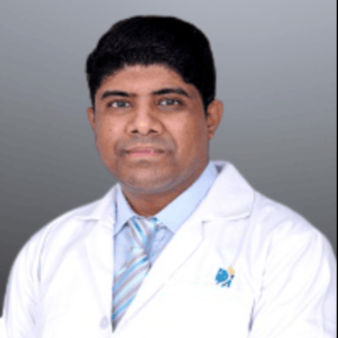
Dr. Atheeshwar Das
Ophthalmologist
15 Years • MBBS,DO,DNB(Gold Medal),FRCS(Glasgow),FICO(UK),
Chennai
Apollo Speciality Hospitals OMR, Chennai

Dr. Sunanda Nandi
Ophthalmologist
7 Years • MBBS, MS (Ophthalmology)
Silchar
Apollo Clinic Silchar, Silchar
Consult Top Eye Doctor

Dr. Zennat Tajmin Shah
Ophthalmologist
24 Years • MBBS,DO,DNB (ophthalmology), Vitreo Retina Surgeon
Kolkata
Titanium Eye Care, Kolkata

Dr Ranojit Basu
Ophthalmologist
24 Years • MBBS, DNB Ophthalmology, Diploma in Ophthalmic Medicine and. Surgery
Kolkata
Titanium Eye Care, Kolkata
Dr. Padmini S
Ophthalmologist
4 Years • MBBS,MS
Bengaluru
Apollo Medical Center, Marathahalli, Bengaluru

Dr. Atheeshwar Das
Ophthalmologist
15 Years • MBBS,DO,DNB(Gold Medal),FRCS(Glasgow),FICO(UK),
Chennai
Apollo Speciality Hospitals OMR, Chennai

Dr. Sunanda Nandi
Ophthalmologist
7 Years • MBBS, MS (Ophthalmology)
Silchar
Apollo Clinic Silchar, Silchar
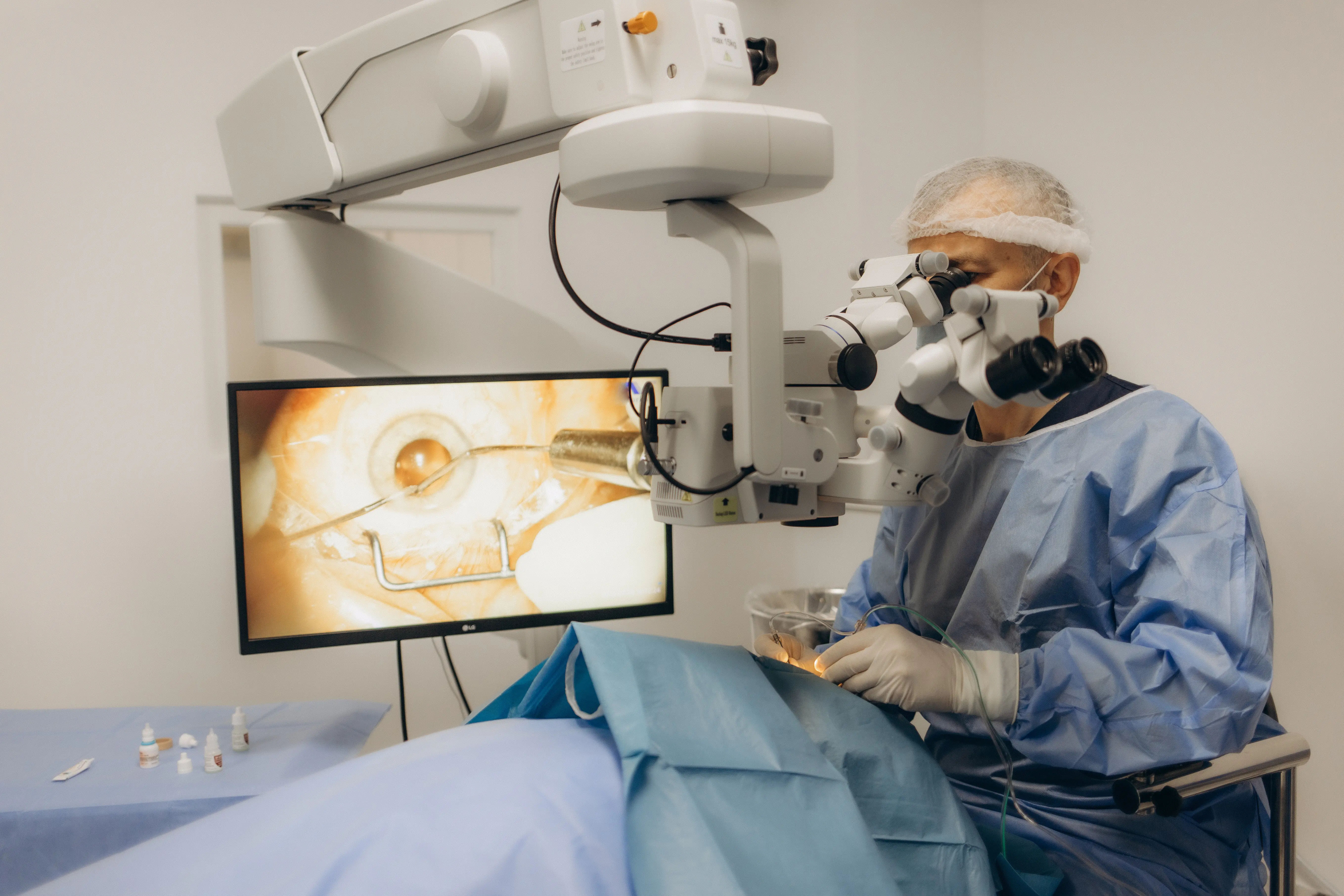
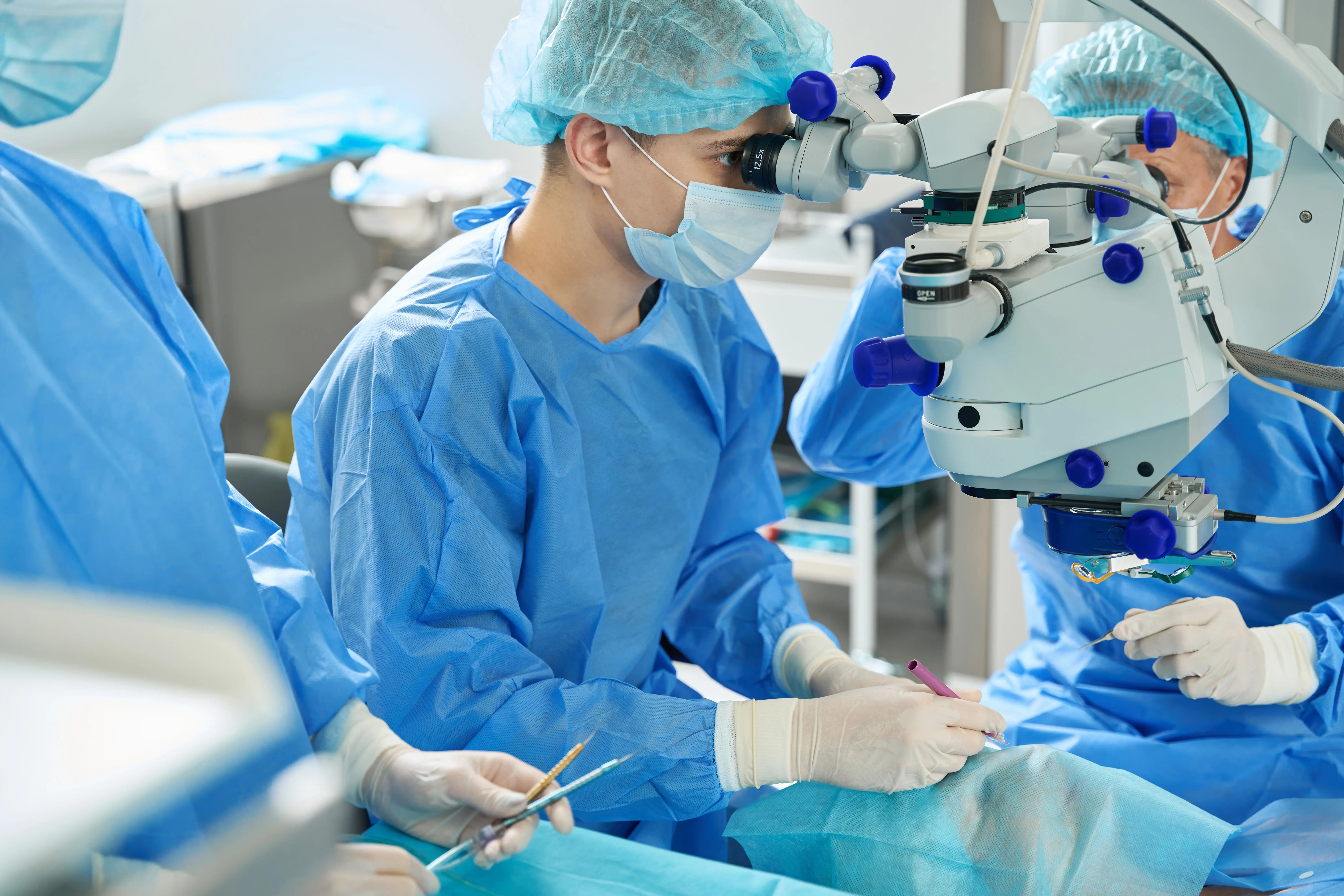
.webp)
